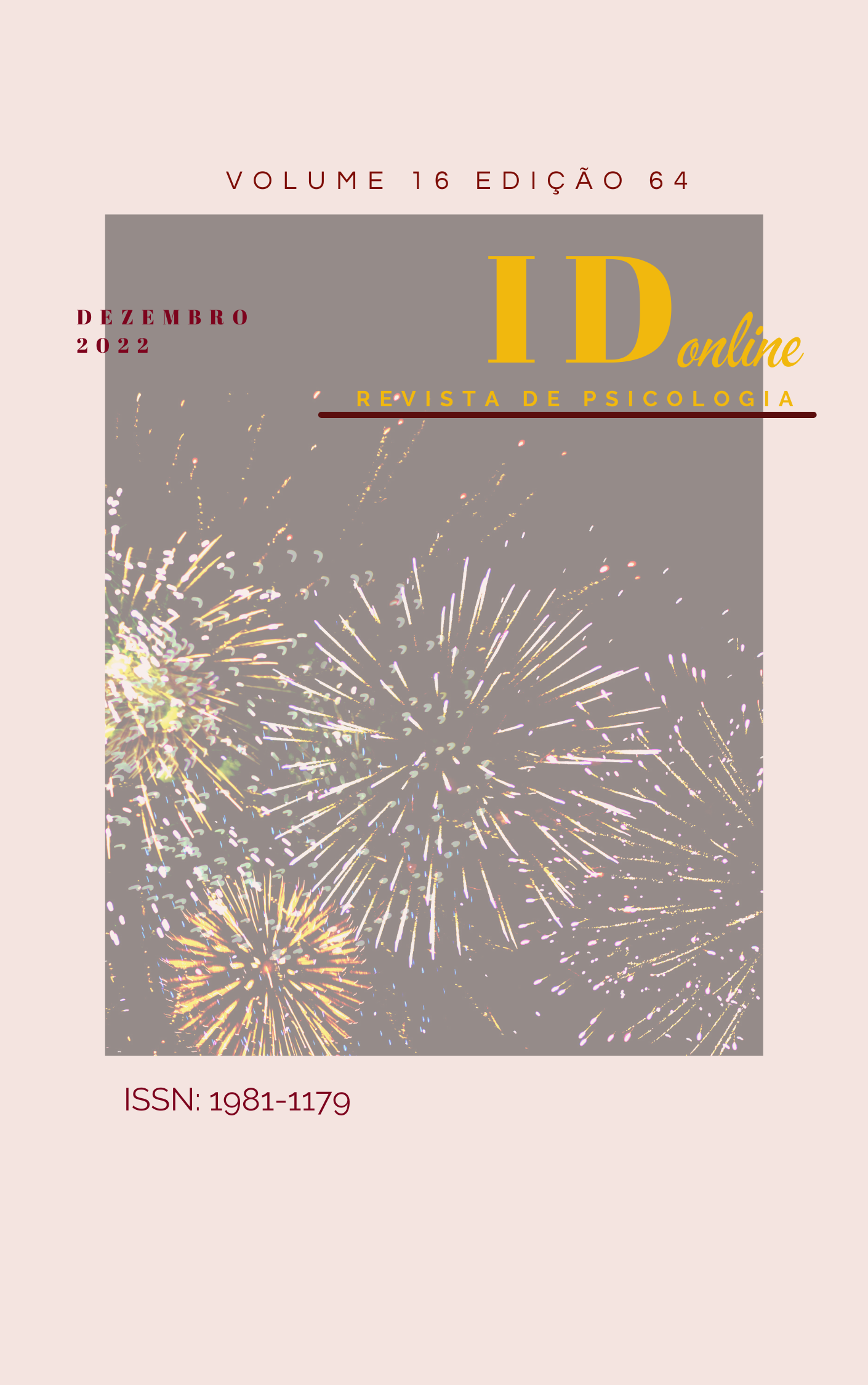The Civil Liability Arising from Affective Abandonment
DOI:
https://doi.org/10.14295/idonline.v17i69.3899Keywords:
Civil responsability, Affective abandonment, Family rights, Jurisprudence, Moral damageAbstract
This research addresses civil liability in the context of Family Law with a focus on emotional abandonment. It begins with an introduction to law, highlighting its duality between legal norms and principles, and its connection with ethics and morals. Next, the research explores contemporary law and how civil liability is undergoing a new paradigm. The articles of the 2002 Civil Code that deal with civil liability are presented, defining it as the obligation to repair damage caused by an unlawful act, in addition to highlighting that civil liability is not limited to the Law of Obligations, but also extends to other legal institutes, such as Family Law. In relation to emotional abandonment, the research discusses the transformations in family relationships throughout history, highlighting the change in the filiation criterion from consanguinity to affection and emphasizing the duty of parents to offer affection and care to their children, regardless of the love between them. , and the lack of these elements is characterized as emotional abandonment and highlights that there can be serious consequences for children and adolescents, and cites the Federal Constitution and the Statute of Children and Adolescents to reinforce the obligation of parents in relation to care and coexistence with their children children. Civil liability arising from emotional abandonment is explained as the obligation to repair the emotional damage caused and it is emphasized that it falls under subjective civil liability, and that the presence of damage is crucial for repair. The objective is to analyze case law to illustrate situations in which emotional abandonment may or may not constitute compensable damage, highlighting the importance of evaluating each case individually. Finally, the research concludes that civil liability in the context of emotional abandonment is a way of repairing the emotional damage caused, being a means of promoting the dignity of the human person and the best interests of children and adolescents.
Downloads
References
BOAVENTURA, Edivaldo. Metodologia da Pesquisa: monografia, dissertação e tese. 1. ed. São Paulo: Atlas, 2004.
BRASIL. [Constituição (1988)]. Constituição da República Federativa do Brasil. Brasília, DF: Presidência da República, [2023]. Disponível em https://www.planalto.gov.br/ccivil_03/Constituicao/Constituicao.htm. Acesso em: 19. jun. 2023.
BRASIL. Lei nº 10.406, de 10 de janeiro de 2002. Institui o Código Civil.
BRASIL. Lei nº. 8.069, de 13 de julho de 1990. Dispõe sobre o Estatuto da Criança e do adolescente e dá outras providências. Diário Oficial República Federativa do Brasil. Brasília, DF, 16 jul. 1990.
BRASIL. Superior Tribunal de Justiça. Rec. Esp. nº1981131/MS 2022/0009399-0. Relator: Paulo de Tarso Sanseverino - Terceira Turma. Julgamento em 08 nov. 2022. Diário da Justiça eletrônica, Brasília, DF, 16 nov. 2022.
BRASIL. Supremo Tribunal Federal. Recurso Especial nº 1.159.242-SP. Recorrente. Antônio Carlos Jamas dos Santos. Recorrido. Luciane Nunes de Oliveira Souza. Relatora. Ministra Nancy Andrighi. Brasília, 24 de abril de 2005. Disponível em: https://processo.stj.jus.br/processo/revista/documento/mediado/?componente=ITA&sequencial=1067604&num_registro=200901937019&data=20120510&formato=PDF> Acesso em: 22 jun. 2023.
CERVO, Amado Luiz; BERVIAN, Pedro Alcino; SILVA, Roberto da. Metodologia científica. [s.l.] São Paulo: Pearson Prentice Hall, 2009.
DIAS. Maria Berenice. Manual do Direito das Famílias I. 10 ed. rev. atual e ampl. São Paulo: Editora Revista dos Tribunais. 2015.
DIAS, Maria Berenice. Manual de Direito das Famílias. São Paulo: Editora Revista dos Tribunais, 2020.
DINIZ, Maria Helena. Curso de Direito Civil Brasileiro: Responsabilidade Civil. 16. ed. v.7. São Paulo: Saraiva, 2002.
DINIZ, Maria Helena. Curso de direito civil brasileiro: responsabilidade civil. 26. ed. São Paulo: Saraiva, 2012.
FARIAS, Cristiano Chaves de; ROSENVALD, Nelson. Curso de Direito Civil. Direito das Famílias. Salvador: Juspodivm, 2013.
FARIAS, Cristiano Chaves; ROSENVALD, Nelson; NETTO, Felipe Peixoto Braga. Curso de Direito Civil. 4 ed. v.3. Salvador: JusPodivm, 2017.
FILHO, Rodolfo Pamplona; GAGLIANO, Pablo Stolze. Novo Curso de Direito Civil: Responsabilidade Civil. 10 ed. São Paulo: Saraiva. 2012.
FILHO, Sérgio Cavalieri. Programa de responsabilidade civil. 2 ed. São Paulo: Malheiros. 2000, p.70.
FILHO, Sérgio Cavalieri. Programa de responsabilidade civil. 9 ed. São Paulo: Atlas. 2010.
GIL, Antonio Carlos. Como elaborar projetos de pesquisa. 4. ed. São Paulo: Atlas, 2002.
LOBO. P. Direito Civil: Famílias. 4 ed. São Paulo: Saraiva. 2008.
MADALENO. Rolf. Direito de Família. Rio de Janeiro: Forense, 2018.
MARCONI, Marina de Andrade; LAKATOS, Eva Maria. Fundamentos de Metodologia Científica. 8. ed. São Paulo: Atlas, 2019.
NADER, Paulo. Curso de Direito Civil, v. 5: Direito de Família/Paulo Nader. Rio de Janeiro: Forense, 2013.
ROSENVALD, Nelson; FARIAS, Cristiano Chaves de; NETTO, Felipe Peixoto Braga. Novo tratado de responsabilidade civil. 4ª ed. São Paulo: Saraiva Educação S.A., 2019.
VENOSA, Silvio de Sálvio. Direito Civil: responsabilidade civil. 3. Ed. São Paulo: Atlas, 2003.
Downloads
Published
How to Cite
Issue
Section
License
Copyright (c) 2023 Ednaiara de Almeida Dias dos Santos, Emily de Sousa Carneiro, Matheus Maia Amorim

This work is licensed under a Creative Commons Attribution-NonCommercial 4.0 International License.
Os autores detêm os direitos autorais sem restrições, devendo informar a publicação inicial nesta revista, em caso de nova publicação de algum trabalho.










